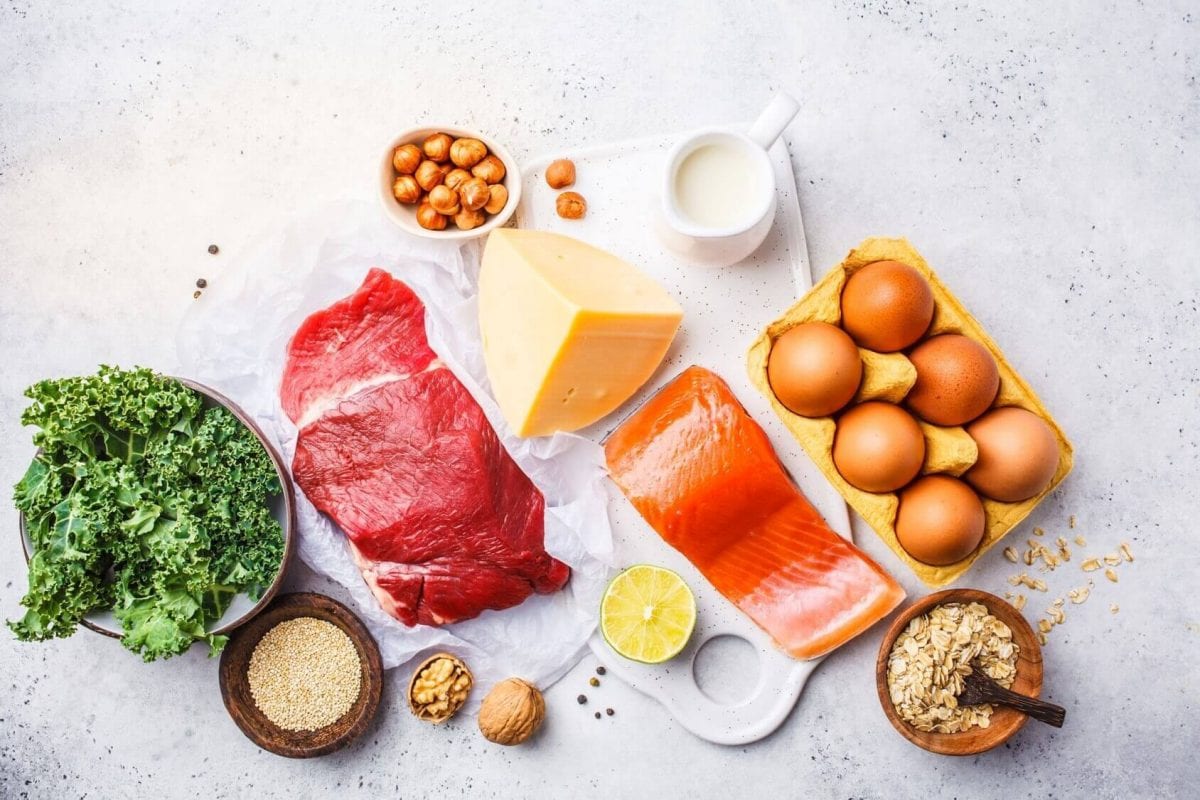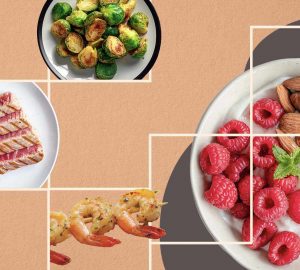Just like healthy fats and carbohydrates, high quality protein in our diet are an important part of a balanced lifestyle. This week we’re going to dive into what proteins are, why they’re so important for health, and how you can incorporate both animal and plant-based proteins into every meal.
Proteins are made up of amino acids which are the building blocks for every cell in your body. You need to consume adequate protein to replenish these building blocks and make new proteins. Proteins help you to build muscle and improve body composition, boost metabolism, and help keep you full between meals. But proteins also make up important molecules in your body such as enzymes, antibodies, and neurotransmitters. All of these are vital for your body to be functioning properly. Here are some of proteins’ key functions:
1. Proteins are good for digestion. Digestive enzymes are proteins that are important for proper digestion. In order to break down and absorb nutrients from food, you need to be getting adequate protein in your system.
2. Proteins are good for your brain. Neurotransmitters are proteins that work in the brain to carry signals from one nerve to another. Healthy proteins are critical because they have such a powerful influence on our brain neurotransmitters, which can help us concentrate, focus, and problem solve.
3. Proteins help you stay healthy! Proteins are vital for your immune system. You need adequate protein consumption in order to produce antibodies, the molecules that fight off viruses and other pathogens (which is particularly important right now!).
So how much protein do you need?
The amount you need largely depends on your activity level, with a higher protein requirement if you’re more active. If you are a sedentary adult (we hope you’re not!), you need 0.8 grams of protein per kilograms of body weight at the bare minimum. However, for optimal functioning, we suggest between 1.2-1.8 grams of protein per kilogram of body weight each day. People tend to save most of their protein consumption for dinner, however it’s important to have protein at every meal. This is because you can only store a limited supply in your body at once, so it needs to be constantly replenished. You want to get at least 20-30 grams of protein with each meal. If you struggle with getting enough protein in your diet, here are some suggestions on how to bump up your protein intake:
Animal products such as poultry, meat, and wild fish are a quick and simple way to increase your protein intake for the day. Half a boneless skinless chicken breast has 25g of protein. Look for lean grass-fed meats and poultry as they will provide you with a more favourable fatty acid profile. Remember the importance of healthy fats!
Plant-based protein, such as beans and legumes, will mix up your cooking, as well as provide fibre and other important nutrients. If you are vegetarian, you can get enough protein in your diet from plant sources alone. You might just need to be more attentive to make sure you’re getting your requirements. Here are some examples of vegetarian protein-rich foods to add to your meals:
- One cup of lentils has 18g of protein. To get the full spectrum of amino acids, combine with rice, as it has a complementary profile to lentils.
- One cup of cooked quinoa has 9g of complete protein.
- 1/2 cup of tofu has 20g of protein and is also a rich vegetarian source of calcium.
- 2 tbsp. of hemp seeds will provide you with 10g of protein.
- Spirulina is also a good source of protein. 60% of this green powder is protein by weight (containing every single essential amino acid that humans need). Adding spirulina to your morning smoothie is an incredible way to boost your nutrient density as well as protein intake!
- Finally having a protein powder is a quick and easy way to reach your daily protein needs. Just make sure you avoid any with sweeteners such as acesulfame potassium, aspartame, and sucralose. Living Fuel and Vega make great plant-based proteins.
- Other high-quality sources of protein are eggs, Greek yogurt, tempeh, chickpeas, nuts and seeds, and nut butters.
If you’re using the VIIVIO app, remember to record your protein intake for each meal. Add some healthy proteins to your diet this week and see if you can boost your Eat score!
This week’s challenge: Add healthy protein to each meal
It can be challenging to get enough protein into each meal, especially for breakfast and lunch when you might not have a lot of time. Here are some easy ways you can incorporate protein into every meal and snack throughout the day:
- Add eggs to your toast
- Add Greek yogurt to your morning fruit
- Add spirulina to your morning smoothie
- Be generous with your nut/seed butters on crackers, wraps, or bread
- Add a can of tuna fish to your meal
- Add hemp seeds to your salads or to a smoothie in the morning
- Choose quinoa instead of rice
- Add nuts/seeds or legumes (lentils, chickpeas, or beans) to salads
- Have hummus with veggies instead of ranch dressing
- Choose poultry, fish, or meat for a blast of complete protein
- If you’re feeling ambitious, you can make your own Homemade Protein Balls for an easy snack:
1 scoop protein powder
2 tbsp almond butter
4 tbsp almond milk
2 tbsp maple syrup
Roll into balls and freeze overnight
Happy eating!
AUTHOR BIO
Greg Wells is the CEO and founder of Wells Performance, a global consulting firm on a mission to elevate how we live our lives at work and in life. He has worked with some of the highest-performing individuals on the planet, including Olympic and world champions and elite organizations including General Electric, BMO, Deloitte, KPMG, BMW, Audi, Sysco Foods, YPO and Air Canada. He is also committed to inspiring children and young adults, working with school boards and independent schools around the world.









1 Comment
Comments are closed.